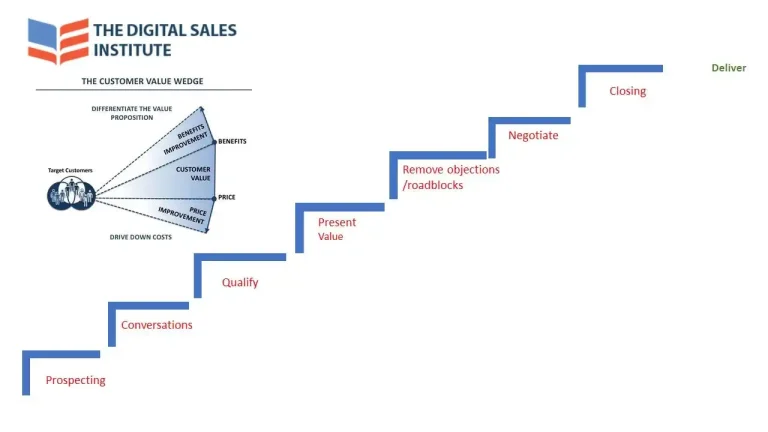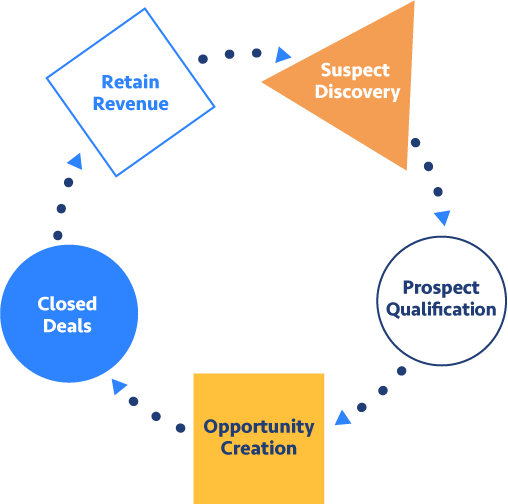Sales scripts are a valuable tool that can help salespeople have meaningful conversations with customers or prospects. In order to create effective call scripts, you must understand your company’s product and services, what is your value proposition and what problems or pains they solve.
What are Sales Scripts?
They usually refer to a prepared walk through of a sales conversation including talking points, value propositions, discovery questions and “asks” or “commitment” steps. In sales, scripts are deployed to ensure all the relevant information has been communicated plus that every sales interaction is maximized. In theory, scripts cover a range of customer needs, giving the salesperson a list of answers to objections or questions a customer may ask. They act as a guide or map to keep the conversation on track and to build confidence in the salesperson.
When it comes to cold calling, scripts can give salespeople credible talking points to get a prospect to listen and open up a dialogue. They can contain powerful words that tweaks a customer’s interest, even if they were apprehensive to start. Sales scripts can also ensure that useful information is captured on every call.
How do Scripts Help?
Sales scripts helps the salespersons productivity in multiple ways. Remember that as much as eighty percent of all selling situations, objections, and questions that a salesperson experiences are the same day in and day out. In other words, selling is a repeatable processes with recurring objections and stalls. The solution for improvement of sales results is the need to learn, adapt, internalize, and use proven and effective sales skills, techniques, and sales scripts to deal with these recurring sales situations effectively and confidently. In other words, selling is a predictable process, and by carefully preparing for it, salespeople can successfully improve their results.
Decrease sales training time.
To increase sales confidence, the more that is covered in the sales scripts, the less time salespeople (especially newer ones) will have to spend training. For the new salesperson approaching calls for the first time, scripts will serve as a map on how to approach each call. An effective sales script will cover most of the basics that a new salesperson needs to be aware of; decreasing the time it takes for them to speak confidently to customers or prospects. This will also lower the amount of time that a trainer or coach has to spend away from other tasks.
Avoiding misinformation.
Scripts can help avoid overselling or providing misinformation during a sales call. They can ensure that the talking points are followed. Especially in reference quoting data, features or delivery. Today, it is important that customers have a good experience when interacting with a company.
Sales scripts promote consistency.
The use of a sales script will give uniformity and consistency to the various conversations the salespeople will have. This helps with reviews, coaching and brand experience. With reference to inside sales scripts, one of the main benefits is to promote consistency of approach across the entire sales team. When dealing with inbound leads or enquires, the company can be sure that each salesperson will handle it the same way. This will decrease wasted leads and improve the quality of information in the sales pipeline.
Retaining information.
Retaining and recording the right information can be the difference between a qualified lead and a missed opportunity (or even a lead that can be churned). Scripts should have areas in which the salesperson can add, write and personalize the information to each customer. This will improve their information retention, boost their knowledge and acts to remind them to gather information from each sales call.

Best practices when using sales scripts.
Scripts have to be created to sound natural, logical, informative and extracts the correct information or actions. They are the bones or the skeleton of a sales conversation where the salespeople add the meat and substance in communicate like an expert. Whatever the core scripts, letting salespeople improvise within a structure can boost performance. Scripts do enhance productivity when used correctly. Remember, every customer today wants to feel like they are talking to an expert!
Make it easy to read.
One of the purposes of any script is to streamline and plot out the sales conversation. Making the script easy to read and in bullet points will translate into the salesperson being able to focus on the customer. Breaking the script into segments allows the salesperson to map the conversation and improves their listening capacity. A script that is easy to digest will enhance sales performance.
Learn the script.
The sales scripts are guides to the steps in a sale and not bibles. Customers want to speak with an expert, not a chatbot. One to one human interaction is key in selling today. If a customer feels that an interaction is too artificial or staged, they will become distant and close down. It is important that salespeople know the flow of the script and never to appear as if they are reading from a prompt. This takes training and practice, plus it is important to be able to navigate a sales conversation prior to being put in front of a customer.
Customize the sales scripts.
No script is a one-size-fits-all solution. Every customers have different needs and problems unique to them that need resolving. This must be considered when crafting scripts for the sales team. Having different variations of the script will help salespeople identify the best way to approach or respond to a customer. Additionally, each salesperson has their own unique personality. Different words can have the same meaning when spoken, so allow the salespeople to customize and personalize the script to their vocabulary.
Consult the experienced salespeople.
When launching a new campaign or product, tap into the skill and expertise of the more experience team members. They are on the front lines, and usually know what customers are looking to hear and feel. It is important to include feedback from salespeople when developing sales scripts. It gets buy-in plus creates a sense of ownership as they have been consulted. Which in turn, they are more likely to use and improve the scripts.
Use real sales calls to create the scripts.
Alongside consulting the sales team, before rolling the scripts out to the entire sales team is to make sure a script is workable by taking notes from a real customer interactions. Did it flow naturally, did it sound authentic, were the words or data credible etc. Trialling the script with one of the better salespeople will give a good flavor of how receptive the sales pitch will be to customers. It is important to know what gets the attention of real customers and gets them engaged in a conversation.
Don’t be afraid to amend scripts.
If close rates or other metrics are not improving, it is important to revisit each sales script for content and impact. Creating effective sales or support scripts takes trial and error and there is no such thing as the perfect script. There is also a good amount of fluidity involved. Review where obstacles to the conversation arises, where are the stop points, where do customers exit, are the discovery questions uncovering quality information and then use this to tailor the sales scripts accordingly. A script that worked six months ago on campaign A may not be relevant or suitable for campaign B. Also, trends and changes in the market means new wording and script structure has to evolve regularly.

sales scripts to boost conversations
Sales Scripts Key elements:
We know that every sales situation is unique with interest levels, knowledge and awareness of each customer or prospect will be different. Regardless of the sales situation, as many of the following elements should be incorporated as possible into the call script, as much as possible:
Background Info: Who the prospect is.
• Business name and industry
• Contact name
• Contact e-mail and phone
• Information about the prospect’s business/market.
Positioning: Who you are.
• Minimum – your statement that’s customer-focused
• More time – one or two key aspects that are unique to your company.
Value proposition: Why they should listen or care about you.
• Minimum – the statement of the value proposition, “does it command attention?”
• More time – relevant benefits that express why they should consider you instead of other
available options.
Qualifying questions: Why you should care about them.
• Minimum – what kind of opportunity they represent – do they have a problem?.
• More time – uncover interest, decision-making drivers, budget, timeframe, executive sponsorship,
current needs, current issues etc.
General information on how to engage with prospect:
• Build a Relationship. People buy from people, so get to know the person you are talking to.
• People buy from people that they like and trust and building personal relationships helps build business and repeat purchases
• Most people feel good when someone takes interest in them and their interests. (If they are sincere, and the situation is appropriate, of course.)
• Use CRM to keep track of the little personal details e.g. hobbies, birthday, family activities as well as the key business information such as how the business is run, what their specific needs, wants, and objectives are.
Be agile and responsive.
While sales scripts offer a solid foundation on which a conversation can be built upon, they can only do so much. Salespeople need sales training to feel out each conversation for themselves. Selling is a skill; it requires improvisation and being agile to mould around the customers expected experience. Salespeople drilled to only work within a narrow bones of a script will not be successful.
To finish, we are not suggesting that sales scripts are a catch all solution to boost sales performance or sales skills. What they can do is provide structure, reduce training, deployed a guiding tool and a map to help salespeople maximize their sales activity.



